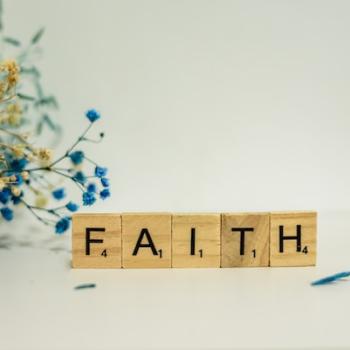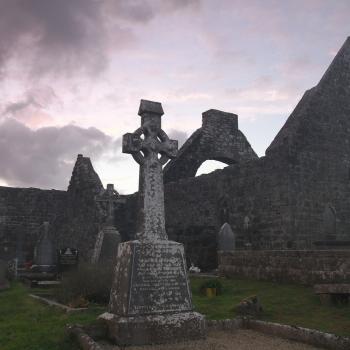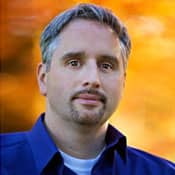Our church youth group is overrun with zombies. To be more accurate, it's overrun with those of us who can't seem to get enough of the AMC TV series The Walking Dead. Is it strange for a Christian youth group to be fascinated with a TV show about an apocalyptic future in which a global pandemic has turned most of the population into flesh-eating zombies? Perhaps, but something about the storyline, the premise, and the characters has drawn in adults and teens alike in our ministry, and we've been wondering for several months now how we might find a way to talk about The Walking Dead in a religious context. Why as people of faith do we find it so compelling? It turns out that the season of Advent just might hold an answer.
Based on a series of graphic novels, The Walking Dead follows a small band of survivors as they attempt to retain their humanity even as they are forced to live in a new world full of unbearable violence. Religiously significant? Certainly we could spend a great deal of time discussing how zombie theology might address the nature of the soul. (Do zombies have one?) We could question what it means for the existence or nature of God if all of humankind is reduced to mindless creatures, incapable of comprehending (let alone worshipping) a deity. We could wrestle with the way the TV series pits morality against the instinct to simply survive at all costs. For those who love to speculate about the book of Revelation, the series invites one to ponder what it would be like to live in the aftermath of an apocalyptic future. But in this season of Advent, I wonder if the appeal of the series for many young people might be in the way it reflects the world in which we are living right now.
The Advent season often begins liturgically with biblical texts that invite us to imagine the end of the world—or more accurately, the end of the present world. The first Sunday of Advent this year arrived with Luke's Jesus foretelling a cosmic upheaval:
There will be signs in the sun, the moon, and the stars, and on earth distress among nations confused by the roaring of the sea and waves. People will faint from fear and foreboding of what is coming upon the world, for the powers of the heavens will be shaken. Then they will see 'the Son of Man coming in a cloud' with power and great glory. Now when these things begin to take place, stand up and raise your heads, because your redemption is near. (Lk. 21:25-36)
For some, this message—that things are about to change in a dramatic fashion—could be frightening. After all, who wants to be around when the powers of the heavens will be shaken? How could that end well for anyone? (By the way—is there ever a happy ending to a zombie apocalypse? Most films on the subject would suggest the answer is "No!") And yet these apocalyptic texts always show up on the Sunday we greet as Hope Sunday. Where is the hopeful message here in these kinds of prophecies?
For those citizens of the ancient world, living lives of oppression at the hands of the Empire, knowing the end was in sight and that big changes were coming was just about the only message of hope they wanted to hear. In a sense, anything had to be better than the present situation. And what of our teens today? Do they really want to see the world turned upside down? Some do, yes. The family of one young teen I know has experienced a very difficult time in recent months. Both of his parents are out of work and one has suffered health problems. Like many families with children these days, they aren't certain where the next mortgage payment is coming from or how to cover the medical bills. For this youth, The Walking Dead has become his "go to" TV show. He brings up the possibility of a zombie apocalypse in every conversation. Recently he wondered if the world might be better if everything was wiped out like in The Walking Dead—banks, stock markets, debts—and we just had to start over, living off the land and our own wits like Sheriff Rick Grimes and the other characters in the show.
It makes sense that a teen whose family has fallen into a financial abyss wants to see the end of the present world. It makes sense, for example, that a teen who is feeling the weight of pressures related to job, school, and relationships would want to see the end of the present world and the beginning of a simpler existence. It makes sense that a teen struggling with her sexual identity might want to see the end of the present world. (In the zombie apocalypse, no one cares if you're gay. They just want to know if you can help them survive!)
It makes sense that some overwhelmed teens might even envy the zombies themselves. To live as a zombie means you are no longer bothered by moral questions, expectations of others, worries about the future. Zombies don't care what they look like. They aren't responsible for what they do. They follow their herd. They simply exist. The fact that they are zombies isn't even their fault. In most scenarios, they become zombies as a result of a plague, an errant radioactive meteor, or a chemical accident. To wish for the coming of a zombie apocalypse, to envy the zombie, might be exactly what some of our young people fantasize about when they feel the weight of life pressing down on them.





